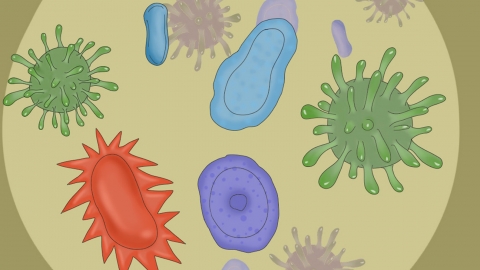How to Determine if You Have Helicobacter pylori
Generally, one can suspect Helicobacter pylori infection by observing symptoms such as persistent bad breath, recurring stomach pain and bloating, acid reflux and heartburn, nausea upon waking, and abnormal bowel movements. If discomfort occurs, it is recommended to seek timely diagnosis and treatment at a reputable hospital. Detailed explanations are as follows:
1. Persistent Bad Breath
Helicobacter pylori breaks down urea in the stomach to produce ammonia, which has a pungent odor and can be expelled through the mouth, causing persistent halitosis. This type of bad breath is usually difficult to alleviate even after brushing teeth or rinsing the mouth. If it persists long-term without oral disease, Helicobacter pylori infection should be suspected.
2. Recurrent Stomach Pain and Bloating
Helicobacter pylori colonizes the gastric mucosa and may cause inflammation or ulcers, leading to gastric muscle spasms and digestive disturbances, resulting in recurring stomach pain and bloating. If symptoms frequently occur without clear dietary triggers, infection should be considered.

3. Acid Reflux and Heartburn
Helicobacter pylori may stimulate excessive gastric acid secretion or damage the gastric mucosal barrier, causing acid reflux into the esophagus and resulting in acid regurgitation and heartburn, especially noticeable after meals or when lying down. Consideration should be given to a possible association with Helicobacter pylori infection.
4. Morning Nausea
Following Helicobacter pylori infection, gastric mucosal inflammation may impair gastric emptying function, causing food to remain in the stomach for extended periods during the night, leading to nausea upon waking. Some individuals may experience mild vomiting. If pregnancy and pharyngeal inflammation are ruled out, this symptom may indicate infection.
5. Abnormal Bowel Movements
Helicobacter pylori infection may interfere with normal digestion and absorption in the gastrointestinal tract, causing changes in stool characteristics, such as sticky or unsatisfactory bowel movements, increased frequency, or alternating constipation and diarrhea. If these persist long-term without dietary or intestinal disease triggers, infection should be suspected.
Additionally, if a family member has been diagnosed with Helicobacter pylori infection and shared meals were not separated, the risk of infection increases if you experience multiple symptoms mentioned above. It is important to note that self-assessment is only for preliminary reference. Diagnosis must be confirmed through medical tests such as carbon-13 or carbon-14 breath tests and gastroscopy. Do not self-medicate based solely on symptoms. In daily life, cultivate the habit of eating separately to reduce the risk of cross-infection.





